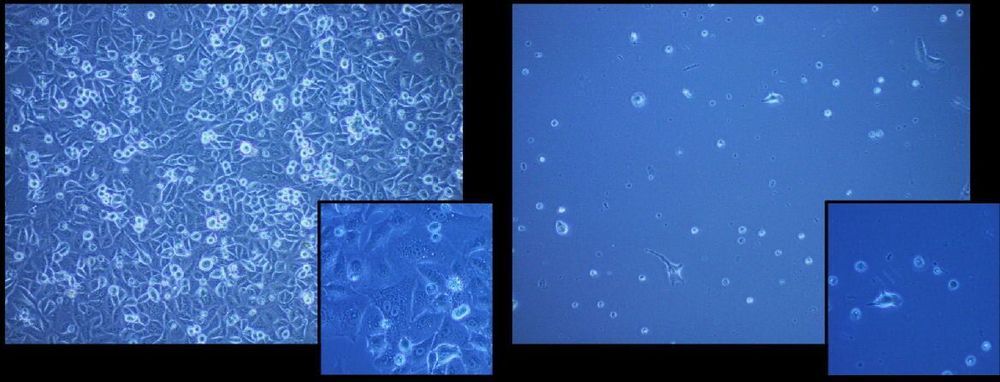Cell freezing (cryopreservation)—which is essential in cell transfusions as well as basic biomedical research—can be dramatically improved using a new polymeric cryoprotectant, discovered at the University of Warwick, which reduces the amount of ‘anti-freeze’ needed to protect cells.
The ability to freeze and store cells for cell-based therapies and research has taken a step forward in the paper “A synthetically scalable poly(ampholyte) which dramatically Enhances Cellular Cryopreservation.” published by the University of Warwick’s Department of Chemistry and Medical School in the journal Biomacromolecules. The new polymer material protects the cells during freezing, leading to more cells being recovered and less solvent-based antifreeze being required.
Cryopreservation of cells is an essential process, enabling banking and distribution of cells, which would otherwise degrade. The current methods rely on adding traditional ‘antifreezes’ to the cells to protect them from the cold stress, but not all the cells are recovered and it is desirable to lower the amount of solvent added.
